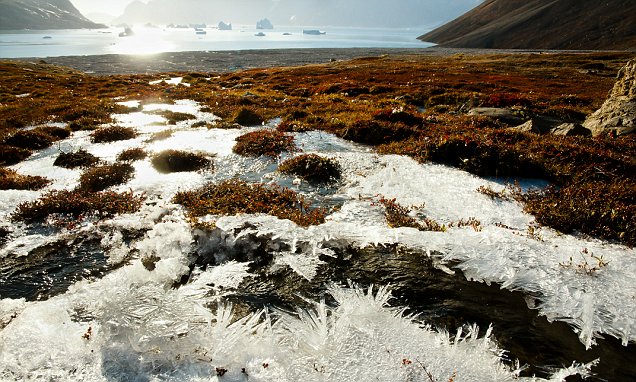Climate Change is not a debate or a myth anymore. For many countries, the summer of 2018 has proven to be the hottest ever recorded in human history.
For the richer part of the world, global warming means equipping their houses and offices with air conditioning and adopting a Dubai-style eternal indoors lifestyle. For the majority of the world, it means suffering ever increasing levels of AC produced carbon dioxide and chlorofluorocarbons that exacerbate the effect of global warming even further.

We traded an office freezer for a street furnace.And we increase individual air conditioning escapism even more with global average temperatures reaching new heights and causing massive heatwave deaths, as was a recent case in Japan. Chances are the situation will not change when people start losing consciousness due to lack of oxygen in big cities.
What distinguishes current discussions on global warming is not the sudden deluge of facts, it’s the boldness and urgency of facing a “point of no return.”
In early August, the New York Times and The Economistpublished articles claiming we are losing the war against climate change. Both articles seem to have been perfectly timed. August 1st 2018 we reached an Earth Overshoot Day — the point in a year at which our demand for natural resources exceeded the Planet’s renewing potential. Unfortunately, unlike trillions of dollars in government debt, we cannot print more forests, air and water. And even once we are able to do so, we will need more energy than it will be able to recreate.
We equip ourselves with an individualistic outlook and the hope that buying a remote island or New Zealand citizenship will secure us an untouched paradise. I went to Seychelles in the hopes to seeing a virgin paradise just to discover a cemetery of bleached corals and once beautiful beaches covered by algae.

I went to Iceland to see the potent glaciers just to see them melt away and learn that the country has been losing about 9.5 billion tons of ice each year since 1995 without ever coming back.
Hopes that Iceland may substitute Ukraine and Greece as a European Breadbasket, when global average temperatures reach 3-4 degrees above pre-Industrial levels, were crushed upon the realization that Iceland is made of hard volcanic rock and is soon to become an eternal winter land as Greenland ice melts and destroys the Gulf Stream previously saving Nordic countries from uninhabitable cold.

We are living in the epoch of Anthropocene, which marks Homo Sapiens’ triumph and absolute dominance of the Planet and which is most likely to end as the last human collapses from exhaustion as underground bunkers cannot replicate the amount of food once produced at a still habitable Earth surface.
IPCC’s median business-as-usual projection for warming by 2100 is about four degrees, which would expose half the world’s population to unprecedented heat stress and render the Planet partially uninhabitable.
The statistics of horrors and most likely scenarios given the current economic model are very exhaustive, and I believe you know most of them if you read about it so far.
It is much more interesting why we choose to do nothing about it.In line with scientific discoveries the world community has been aware and had enough proof of climate catastrophe as early as the 70’s of XX century.
According to Nathaniel Rich in his New York Times article, 1979 to 1989 was the decisive decade when humankind first broadly understood the effects of climate change and the necessary actions to avoid the horrific consequences. Thinking of ourselves as rational economic agents, surely we must have taken immediate action in a timely manner. As time has shown Kyoto protocol was more of an imitation of action rather than a decisive stand.
Why? Were we really so skeptical of scientific facts or so optimistic about the capacity of future generations to deal with the problem?
In a recent interview with Joseph Stiglitz at Royal Society, I also learnt that the 70’s-80’s mark the beginning of a sudden disconnect between workers’ productivity and their hourly wages. Thus, the global awareness of climate change went hand in hand with the strengthening of hardcore capitalism (specifically Thatcherism & Reaganomics) as well as the establishment of global conglomerates, mainly in energy sector. 1989 was also the year of the fall of the Berlin Wall and an ultimate justification of capitalism as a winning world economic order.
Truth is, people who could have acted at the right time, were too busy making money – creating and living the “American dream” – an indication of success and a well-deserved fruit of their lifelong efforts and striving.
And those were smart people. They controlled major financial streams and shaped the direction our economy, politics and culture has evolved. Were all these smart and influential people blind? Why did they not take climate scientists’ alarms and urges into account?
Nature bestowed them with unsurpassed analytical and negotiation skills, strong character and the power to overcome adversity. In most cases fate also gave them rich and influential parents and an open ticket to do whatever they pleased to do. But it also gave them the most precise and irreversible countdown.
Why didn’t Mikhail Gorbachev, Ronald Reagan and Deng Xiaoping come together to establish the limits to carbon emissions and global pollution? Cold War and economic considerations aside, these guys would have been long dead by the time our oceans devour the world’s major cities, forests start a perpetual burning cycle and melted permafrost releases deadly viruses previously unknown to Homo Sapiens.

How can anyone make a statement so selfish and brutal on human nature? Clearly, we care about our children and mankind! At least this is what we want to believe. What differentiated the Cuban Crisis of 1962 and the nuclear annihilation crisis of 1983 from today’s global warming bomb is only the timing and the inability to feel the breath of death behind our own back.
We definitely care about our own children. What we do not understand is the bystander effect of humanity as a whole.
We have a sarcastic saying in Ukrainian that translates to the following “There can be a flood after we are gone.” I think nothing describes the world’s complacent attitude better than this tongue-in-cheek Ukrainian adage. There can be a flood; and there will be a flood, but it will no longer be us who will drown…
It is human mortality and its universal acceptance that prevented taking the correct course of action in the 80s.
So what has changed? Millennials and Generation Z, who increasingly enter the decision making scene, expect to live several years longer than their predecessors as well as enjoy a more productive life in older age. Life expectancy is only part of the answer. More significantly, the ongoing scientific discoveries in machine learning, biotech and nanotechnology inspired Transhumanist hopes for the possibility of immortality in our lifetime.
For God’s sake, Ray Kurzweil is 70 years old and he hopes to be alive before the Singularity arrives! Should we not?






























I?ve been exploring for a little bit for any high quality articles or blog posts on this kind of house . Exploring in Yahoo I ultimately stumbled upon this website. Studying this info So i?m satisfied to exhibit that I’ve a very excellent uncanny feeling I came upon exactly what I needed. I so much undoubtedly will make certain to don?t disregard this website and provides it a look regularly.
Thank you for sharing your ideas!